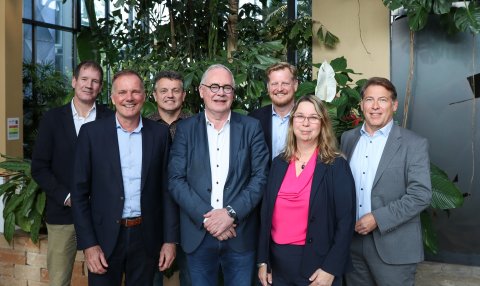
Facility management & operations teams have a great opportunity to lead positive change within the built environment and support their organization’s ESG and sustainability goals. According to the World Economic Forum, buildings are responsible for almost 40 percent of global greenhouse gas emissions, 50 percent of the world’s energy consumption and 40 percent of its raw material usage.
Those numbers may seem daunting, but transforming your buildings and facilities into assets that benefit the environment doesn’t have to be overly complicated. Here are five simple changes your facility management teams can make today to better support your ESG goals:
1. Be proactive
There is plenty of talk and good intentions around sustainability, but often this hits roadblocks and never translates into action. So how can you overcome this? For the best results, sustainability must be viewed as a fundamental component of corporate culture, value creation, and risk management.
Concrete initiatives are key, but putting a value on the damage that unsustainable practices cause, also helps to get some departments motivated. For instance, an additional $23 trillion could be lost from the global economy by 2050 if the current situation around climate change persists. With clear goals and better tools for sustainability and ESG reporting, facility management teams can make a huge impact, especially around energy usage and efficiency, by simply sharing the data they already collect and manage.
2. Employ the latest technology
Collecting relevant environmental and building performance data in well-structured databases, such as an Integrated Workplace Management System can greatly support sustainability reporting, especially around energy efficiency. Other FM technology tools, including Environmental Sustainability Monitoring software like Schneider Electric’s Resource Advisor, as well as integrations between such platforms can be similarly helpful in ensuring ESG data is accurate, up-to-date and well-maintained.
3. Improve workplace efficiency
There are several steps your facility management teams can take to improve efficiency within the built environment. Organizations can monitor workplace usage, the popularity of different work environment setups and preferred interior climatic conditions. In fact, even more factors can be measured to understand actual resource usage and avoid waste. Not only will this enable organizations to right-size their real estate portfolios, but it is also likely to improve employee satisfaction levels - helping you to meet the social element of any ESG goal.
4. Embrace hybrid working
The COVID-19 pandemic saw hybrid working rapidly adopted, but many facility managers could still do more to ensure it is employed in a way that best improves sustainability. Hybrid workplace options can be used to reduce an organization’s facility footprint. At the same time, office workers gain an individual space with improved comfort and well-being benefits, resulting in higher employee satisfaction levels. In fact, a study by Cornell University and Microsoft found that remote workers can produce up to a 54 percent lower carbon footprint compared to onsite workers.
5. Get everyone involved
True success around sustainability can only be achieved by adopting a holistic approach. Organizations need to engage their IT departments, financial teams, business analytics teams, HR staff, operations and maintenance managers, contractors, and facility management personnel to truly gain visibility into the sustainability of their building. What can be done to improve it?
Combating climate change will take a great deal of work and the built environment certainly has an important role to play - but so do facility managers.
Want to learn more? This is just one section in the e-book created jointly by Planon and Schneider Electric. Read the full e-book Facility Management and Sustainability: A Fundamental Alliance here.




















